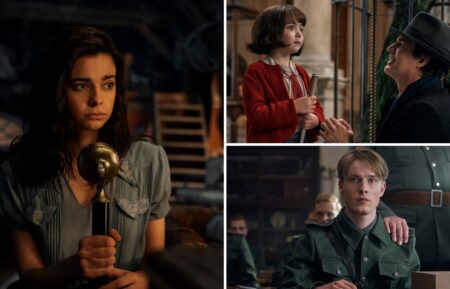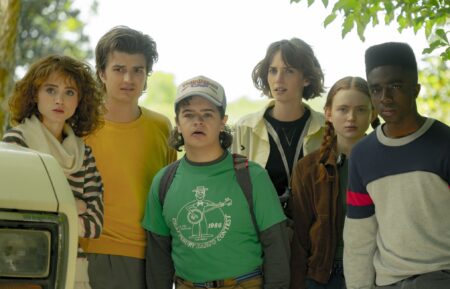Shawn Levy

Director • Producer • Actor
Birth Name: Shawn Adam Levy
Birth Date: July 23, 1968
Age: 56 years old
Birth Place: Montreal, Quebec, Canada
Shawn Levy established himself in the early 2000s as a go-to director for major studio comedy features, most notably the big-budget comic adventures "Night at the Museum" (2006) and "Night at the Museum: Battle of the Smithsonian" (2009). The Canadian-born Levy broke into show business in the late 1980s as an actor with occasional television guest star roles, but would go on to make a bigger name producing and directing light kiddie fare, including stewarding the Disney Channel hit, "The Famous Jett Jackson" (1998-2001), before eventually graduating to network primetime as executive producer of the short-lived Rebecca Romjin series, "Pepper Dennis" (2006).
In the meantime, he developed a rep as a workmanlike helmsman of family films, often working in tandem with producer Robert Simonds on films like the two Steve Martin vehicles, "Cheaper by the Dozen" (2003) and "The Pink Panther" (2006). Though never a critical darling, Levy watched the box-office receipts of his movies increasingly outweigh his less auspicious notices; most markedly with the "Night at the Museum" franchise, which collectively went on to gross nearly $1 billion at the worldwide box office. By the end of the millennium's first decade, Levy had made a name for himself as a staple creator of Hollywood's lighter blockbuster fare, commanding some of the top budgets for comedic productions in the business.
He was born Shawn Adam Levy in 1968 in Montreal, Quebec, Canada. Gravitating to drama class by his high school years, he participated in the acting camp at the renowned Stagedoor Manor Performing Arts Training Center in Loch Sheldrake, N.Y. and, upon graduating high school, was accepted into Yale University's drama program. He landed some minor work during his college years, including his first credited job in the Canadian-made television movie, "Miles to Go" (1986) starring onetime Hollywood leading lady Jill Clayburgh, followed soon after by the notoriously bad B-horror flick "Zombie Nightmare" (1986).
He netted mostly telefilm work in ensuing years including roles in the CBS biopic "Liberace: Behind the Music" (1988) and another horror outing, "The Kiss" (1989). Upon graduating Yale cum laude in 1989, he traveled to Los Angeles and segued into more television work, picking up mostly guest star appearances on such series as "China Beach" (ABC, 1988-1991), "21 Jump Street" (Fox, 1987-1991), "thirtysomething" (ABC, 1987-1991) and "Beverly Hills, 90210" (Fox, 1990-2000). After a few years struggling in L.A., however, he developed the itch to work on the other side of the camera, so promptly enrolled at the University of Southern California's prestigious graduate film school.
He garnered some buzz over a short film, "Broken Record," he produced while working on his master's degree. In 1996, it paid off when he secured directorial work on the Nickelodeon program about a young super-powered girl, "The Secret World of Alex Mack" (1996-97). He returned to Canada to helm some episodes of a brief Canuck revival of the "Lassie" franchise, which led to work on the Showtime anthology series, "Dead Man's Gun" (1997-99) and kicked off a flurry of mostly Canadian-shot directorial jobs on low-budget, kid-targeted programming, such as Nickelodeon's "The Journey of Allen Strange" (1997-2000) and "Animorphs" (1998-99).
The children's programming groove proved fortuitous when in 1998, Levy scored work on a new Disney Channel show, "The Famous Jett Jackson." The show followed its title character, a child star on a TV show in which he played a secret agent, as he tries to balance work and stardom with his own coming-of-age while shooting on location in his hometown. The show rated well for basic cable, so he was made executive producer in 2000 and continued on a follow-up TV film, "Jett Jackson: The Movie" (2001). Levy's extensive experience working with child actors won him his first major feature job, directing another Disney star, Amanda Bynes, and the young star of Fox's "Malcolm in the Middle" (2000-06), Frankie Muniz, in "Big Fat Liar" (2002). The film, following a battle of wits (and pranks) between Muniz and a Hollywood producer (Paul Giamatti) who illicitly bases a movie on the former's school essay, won mixed but generally positive reviews and, much on its youthful stars' draw, made $53 million worldwide on a $15 million budget.
With that win on his résumé, 20th Century Fox and producer Robert Simonds tapped Levy to helm "Just Married" (2003), a vehicle for young B-listers Ashton Kutcher and Brittany Murphy as American honeymooners bumbling across Europe. Critics panned the film, with critic Roger Ebert calling it an "overdirected movie, which underlines and emphasizes like a Power Point presentation for half-wits." But "Just Married" more than recouped its $18 million budget, nearly doubling its domestic overseas box office, earning a worldwide total of $101.5 million.
That was enough for Fox to put the same production team on a more auspicious project, a remake of the classic Clifton Webb/Myrna Loy comedy, "Cheaper by the Dozen," with the selling point being Steve Martin as the put-upon father of 12. The movie kicked off Martin's late-career attempts to refashion himself as a lynchpin of family entertainment, and for additional assurance, brought teen favorites such as Tom Welling and Hillary Duff into the brood for good measure, rating the project a considerable at a $40 million budget. With that, Levy put together, by many estimates, less of a story arc than a flurry of slapstick events punctuated by hugs and familial understanding, leading the The New York Times' to call the film "a bubbling crockpot of farcical mush to warm the tummies of anyone who really and truly misses 'The Brady Bunch,' and I mean really and truly."
But moviegoers put the film in the black, eventually bringing in $138.6 million at the domestic box office on the way to a total of $190 million in receipts worldwide. With Simonds and Levy established as a hit-making team, Sony hired them, as well as Martin, to stage their most ambitious project to date: an $80 million reboot of the Blake Edwards/Peter Sellers franchise, "The Pink Panther" that would recast the venerable Martin as Sellers' nigh-inimitable Inspector Clouseau. Dallying with such an imprinted classic, the project was widely seen from the get-go as a cynical Hollywood attempt to cash in on a pre-established entertainment brand, so when the film premiered in 2006, it not surprisingly suffered critical pans. Martin, while trying to render Clouseau as more sympathetic and sweetly clueless than Sellers' arrogantly idiotic character, failed to effect the comedic distinction of the latter, while Levy was perceived as trying too hard to stuff the film with schtick-per-minute versus Edwards' more natural strategy of choreographing Clouseau's imminent bumbling. "Here, as in 'Cheaper by the Dozen,'" The New York Times assessed, "Mr. Levy's cold, streamlined direction gives the movie the feel of a mechanical contraption manipulated by remote control with a nervous finger on the fast-forward button."
The film barely made back its budget at the domestic box office, though it came close to doubling that with overseas receipts. Meanwhile, Fox had also put Levy on the production team of a new hour-long TV comedy to star former supermodel Rebecca Romjin as an ambitious broadcast journalist. The WB picked up the show, and "Pepper Dennis," the pilot of which Levy directed, would get a heavy promo budget as its big midseason replacement show in the spring of 2006. Unfortunately, not enough of an audience materialized and it only lasted three months before The WB pulled the plug. In the meantime, Levy and the maestro of the "Harry Potter" blockbuster franchise, Chris Columbus, had been working on getting a new film franchise off the ground which would prove to be the most successful project he would helm then to date.
With a feature producer credit for the first time, Levy also took on directing duties for "Night at the Museum" (2006). The film tells the story of a down-on-his-luck divorcé (Ben Stiller) who takes a job as a night watchman at New York's massive American Museum of Natural History, soon to discover that all the exhibits come to life at night and he is responsible for keeping them inside. With the elaborate special effects involved in the ensuing hijinks and an impressive supporting cast, the film opened big as Fox's holiday 2006 blockbuster. Though notices were mixed, often citing Levy's tendency to eschew pacing for rapid-fire gags, "Night at the Museum" made $250.8 million at the U.S. box office on the way to a total worldwide gross of $575 million.
Naturally, Fox greenlit a sequel, giving Levy a massive $150 million budget, eventually yielding "Night at the Museum: Battle of the Smithsonian" (2009). The film followed Stiller's character as he journeys to the Washington's Smithsonian complex to save some of his exhibit-come-to-life friends sent into storage there. The result proved an even more chaotic flurry of historical jokes, slapstick and anachronistic one-liners, which may have diluted the attraction of the first film. The sequel performed well but earned a somewhat more modest $413 million worldwide.
The action comedy "Date Night" (2010), starring Steve Carell and Tina Fey as a suburban couple drawn into an unexpected adventure, was followed by the family-oriented "Real Steel" (2011), which garnered generally positive reviews. A buddy comedy starring Vince Vaughn and Owen Wilson, "The Internship" (2013) was a box office flop; a heartfelt comedy-drama about family tension, "This Is Where I Leave You" (2014) performed little better despite an all-star cast headed by Jane Fonda and Tina Fey. Levy followed that with the final film in the Museum trilogy, "Night at the Museum: Secret of the Tomb" (2014).
Expand Bio▼Credits

The Perfect CoupleStream

Assembled: The Making of Deadpool & Wolverine

Sesame Street

Deadpool & WolverineStream

Deadpool & WolverineStream

Deadpool & WolverineStream

Never Let GoStream
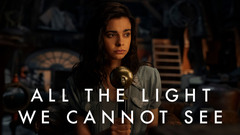
All The Light We Cannot SeeStream

All The Light We Cannot SeeStream
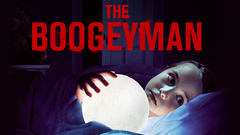
The BoogeymanStream

CraterStream

Alexander and the Terrible, Horrible, No Good, Very Bad Road Trip

Lost OllieStream

The Future Of...Stream

Cheaper by the DozenStream

The Adam ProjectStream

The Adam ProjectStream
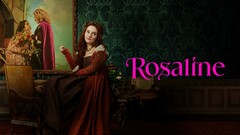
RosalineStream

Night at the Museum: Kahmunrah Rises AgainStream

Shadow and BoneStream

Free GuyStream

Free GuyStream

There's Someone Inside Your House

All Too Well: The Short Film

Dash & LilyStream

Unsolved MysteriesStream

I Am Not Okay With ThisStream

Love and MonstersStream

Robin's Wish

The Violent Heart

KinStream

The Darkest MindsStream

Beyond Stranger Things

Imaginary MaryStream

Table 19

Fist FightStream

Kodachrome

Stranger ThingsStream

Stranger Things

Soirée pyjama

Why Him?Stream

ArrivalStream

Close Up With The Hollywood Reporter

CristelaStream

The Tonight Show Starring Jimmy FallonStream

This Is Where I Leave YouStream

This Is Where I Leave YouStream

Alexander and the Terrible, Horrible, No Good, Very Bad Day
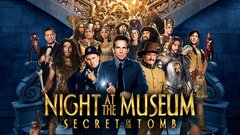
Night at the Museum: Secret of the TombStream

Night at the Museum: Secret of the TombStream

Natt på museet: Gravkammarens hemlighet - sv.tal

Natt på museet: Gravkammarens hemlighet - sv.tal

The InternshipStream

The InternshipStream

The Spectacular NowStream
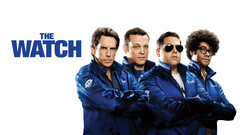
The WatchStream

Last Man StandingStream

Real SteelStream

Real SteelStream

George Stroumboulopoulos Tonight

Date NightStream

Date NightStream
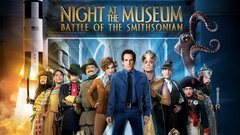
Night at the Museum: Battle of the SmithsonianStream

Night at the Museum: Battle of the SmithsonianStream

The Pink Panther 2Stream

What Happens in VegasStream

The Rocker

30 RockStream

etalk

Pepper Dennis
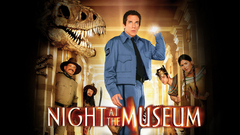
Night at the MuseumStream

Night at the MuseumStream
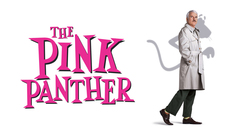
The Pink PantherStream

Cheaper by the Dozen 2

Just MarriedStream

Cheaper by the DozenStream
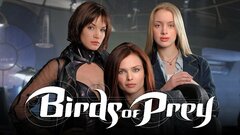
Birds of PreyStream

Do Over

Front Row

Big Fat Liar

Jett Jackson: The Movie

Jett Jackson: The Movie

The View

Address Unknown

Just in Time

Liberace: Behind the Music

La Casa de los Secretos

thirtysomething

Tour of DutyStream

21 Jump StreetStream


![Shawn Levy attends Netflix's 'Stranger Things' Season 4 New York Premiere at Netflix Brooklyn in New York, NY, May 14, 2022. (Photo by Anthony Behar/Sipa USA) (Newscom TagID: sipaphotosthirteen650597.jpg) [Photo via Newscom]](https://media.baselineresearch.com/images/1994201/1994201_small.jpg)




![Shawn Levy at arrivals for STRANGER THINGS Season 4 Premiere in NYC - Part 2, Netflix Studios Brooklyn, Brooklyn, NY May 14, 2022. Photo By: Kristin Callahan/Everett Collection (Newscom TagID: evphotostwo360594.jpg) [Photo via Newscom]](https://media.baselineresearch.com/images/1994212/1994212_small.jpg)
































